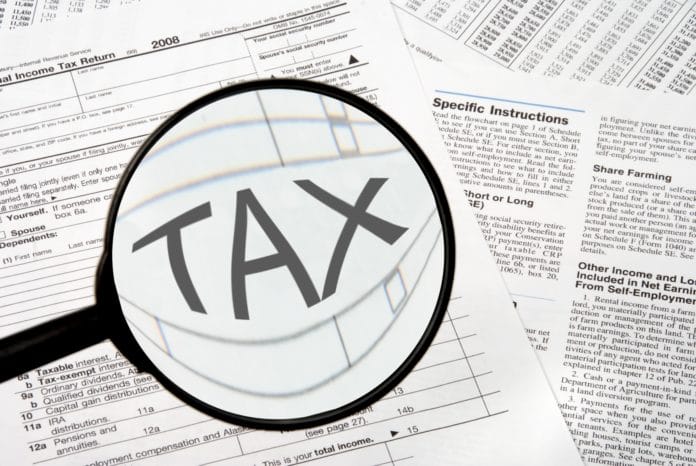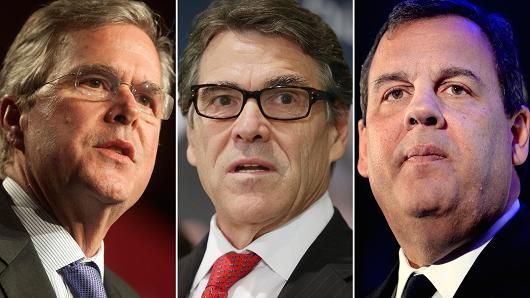The comprehensive tax reform movement, while not completely dead, appears to be on life support, at least until President Obama leaves office. Accordingly, voters who are concerned about this issue are forced to look forward to the next presidential election. While some of the declared Republican Party candidates have included tax reform proposals in their campaign platforms, none of their Democrat Party counterparts have specifically addressed the issue, with the exception of Senator Bernie Sanders (D-VT), who proposes a progressive tax system which would raise taxes on the “very wealthiest” Americans. However, the most recent Democrat Party candidate to enter the presidential race, Governor Martin O’Malley, former governor of Maryland, has a distinctive record on state tax policy while he was in the executive office. Similarly, two of the major Republican contenders who are pushing for tax reform have gubernatorial records on the issue—former Governor Rick Perry of Texas and former Governor Jeb Bush of Florida.
We navigated the growing U.S. tax code and examined the records of these candidates at the state level in order to predict their competence and willingness to tackle comprehensive tax reform on a national level.
Governor Rick Perry (R)—Texas
Former Governor Rick Perry credits his tax reform policies for Texas’ extraordinary economic success story, which he has termed the “Texas Miracle.” In a Wall Street Journal opinion piece published in May, he touted his gubernatorial record: “In Texas, we have long maintained a stable and predictable regulatory climate. We balanced our budget for 14 straight years. And we have worked hard to keep the tax burden on families and employers as low as possible. Those policies have resulted in a sustained economic boom for the state.” On that basis, Perry has proposed a national policy which includes:
1) reforming the tax code and lowering the corporate tax rate;
2) reducing federal spending; and
3) stabilizing the regulatory system.
In his campaign speeches, he is largely focusing on the extraordinarily high corporate tax rate. During Perry’s last presidential run in 2012, he proposed lowering the corporate tax rate from 35 percent to 20 percent.
Perry’s record in Texas lives up to its miraculous moniker. Under his leadership, the economic climate in Texas became one of the best in the country. In 2005, Perry created the Texas Tax Reform Commission, and directed it to make recommendations on how to reform the state’s business tax structure and provide significant property tax relief. He went on to revamp the state’s burdensome franchise tax, lower taxes on small businesses by 46 percent, and champion a historic property tax reduction which constituted the largest tax cut in Texas history. From the great recession at the end of 2007 until 2014, while the country lost 400,000 jobs, the State of Texas added over 1.4 million. Texas accounts for one-third of the net new jobs in the country, the unemployment rate is significantly below the national average, and the Labor Force Participation Rate is significantly higher. In 2015, Business Insider ranked Texas the second best state economy in the country, and Forbes ranked it the fourth best state for taxes.
Governor Jeb Bush—Florida (R)
At a campaign stop in New Hampshire earlier this month, former Governor Jeb Bush made his intentions clear on comprehensive tax reform. “You can’t have high [economic] growth without reforming the tax code,” Bush said. “So we’re working on a proposal.” Again, in Iowa, Bush criticized the outdated tax code: “We’ve allowed since 1987 a tax code to be rife with all sorts of expenditures, basically, $1.2 trillion of annual expenditures that are in the form of deductions and tax credits, creating barriers of the next generation of job creators,” Bush said, “to protect the incumbents.” Bush’s emphasis on comprehensive tax reform in his remarks is encouraging to its proponents, and his excellent record on taxes as governor of Florida lends credence to his willingness to address the issue on the federal level.
At his recent campaign stops, Bush has highlighted his record on tax cuts, claiming that he cut taxes every year of his eight-year tenure, to the tune of $19 billion. Bush also boasts that Florida created 1.3 million jobs during his term, which is, as he never fails to add, better than Governor Rick Perry’s record in Texas. When he left office, state’s economic growth rate was higher than the national average, and its unemployment rate was lower. After adjusting for inflation, middle class income grew by an average of $1,300 under Bush. As of 2015, Business Insider ranked Florida’s state economy at No. 7 nationally, and the Fiscal Times ranked it as the fifth best state in the country for taxes. Bush credits his focus on cutting taxes as the single biggest cause of Florida’s stellar economic record during his time in its executive office.
Governor Martin O’Malley—Maryland (D)
Former Maryland Governor Martin O’Malley has not yet commented on the issue of comprehensive tax reform. Most of his remarks on the economy have been on the subject of raising wages, and he prefers to focus on Maryland’s record on upward economic mobility. His economic policy is ostensibly based on economic fairness, as exhibited by a recent speech at Harvard wherein he called for an end to “tax policies that not only underinvest in our nation, but grossly and disproportionately benefit corporations and the ultra-wealthy.” Accordingly, in terms of tax policy, the only item that O’Malley has thus far mentioned specifically is raising the capital gains tax. Perhaps O’Malley’s reluctance to talk about taxes makes sense, in light of his reputation as an almost fanatical increaser of taxes during his tenure as governor of Maryland. O’Malley’s relentless tax hikes are being cited as one reason why his would-be successor suffered a shocking loss to a Republican, to whom he has bequeathed an $800 million budget deficit and an above average unemployment rate. At its low point, in 2013, Maryland was ranked forty-ninth in economic growth.
During his term as governor, from 2007 to 2015, O’Malley raised the top individual income tax rate, the corporate tax rate, and raised local taxes to give Maryland the top state tax rate in the nation. Additionally, O’Malley raised taxes on nearly everything from beer to cigarettes to gas. He hiked the sales tax, raised vehicle registration taxes, and finally, instituted a stormwater mitigation fee, nationally derided as a “rain tax.” All of these taxes, together with his “millionaire tax” which imposed a 6.25 percent tax rate on incomes of over $1 million per year, was credited with causing a vast exodus of taxpayers from the state. Ultimately, Maryland was ranked by the nonpartisan, nonprofit Tax Foundation as the eleventh worst state in the nation for taxes, and the tenth worst state tax business climate.
About the Author
Joe Garza is the lead partner at Garza & Harris, Ltd., a firm specializing in tax and estate planning. Serving over 2,000 clients in the U.S. and around the world, Garza has structured, closed, and negotiated over $300 million in debt transactions and more than $1 billion in tax exempt bond transactions as Bond Counsel for the State of Texas.




